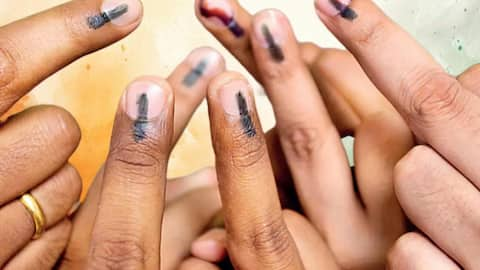Understanding how your vote can shape policy, governance in India
What's the story
In Indian democracy, the power of the people is vested in their ability to vote. Every ballot cast is more than just pushing a button; it's a force that influences the country's policies and governance. With the ongoing election season in India, discover how important it is to vote as you have the power to decide the country's future for generations to come.
Ideologies
Your vote gives you a say in the selection process
India's electoral system is founded on the principle of universal adult suffrage, granting every citizen above the age of 18 the right to vote. Each vote cast is a manifestation of this trust, a signal of support for specific policies, ideologies, or leaders. This fundamental right empowers individuals to have a say in the selection of their representatives at various levels of government.
Agendas
Your vote influences policy formation
Each vote holds the potential to influence policy formulation in India. Political parties craft their manifestos based on the needs and aspirations of the electorate, striving to address pressing issues such as economic development, social welfare, healthcare, education, and national security. The preferences expressed through votes serve as a compass guiding policymakers in prioritizing agendas and implementing reforms.
Negotiation
Your vote can contribute to formation of coalition governments
India's political landscape is characterized by its diversity, with a multitude of parties representing various ideologies, regions, and interest groups. In this milieu, every vote holds significance, as it can contribute to the formation of coalition governments. The dynamics of coalition politics necessitate negotiation and compromise, as parties strive to reconcile divergent agendas while adhering to the mandate bestowed by voters.
Advocacy
Your vote acts as a catalyst for social change
Beyond the ballot box, your vote plays a pivotal role as a catalyst for social change. At the same time, it helps amplifying the voices of marginalized communities and holding authorities accountable. Through advocacy, activism, and civic engagement, citizens complement the electoral process, contributing to a democracy that works for the well-being of its citizens.
